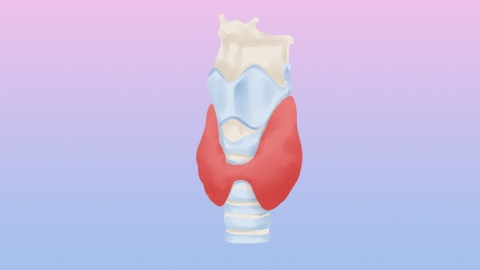How is hypothyroidism caused?
Hypothyroidism generally refers to hypothyroidism. Under normal circumstances, hypothyroidism may be caused by long-term insufficient iodine intake, prolonged excessive dieting leading to nutritional imbalance, Hashimoto's thyroiditis, subacute thyroiditis, hypopituitarism, and other factors. It is recommended to seek timely medical attention, identify the underlying cause, and undergo symptomatic treatment under a doctor's guidance. Detailed analysis is as follows:

1. Long-term insufficient iodine intake: Iodine is a key raw material for synthesizing thyroid hormones. A long-term lack of iodine-rich foods such as kelp, nori, and iodized salt in the daily diet can lead to insufficient synthesis of thyroid hormones, causing hypothyroidism. It is important to adjust dietary habits and ensure adequate daily intake of iodine-containing foods.
2. Prolonged excessive dieting and nutritional imbalance: Long-term excessive dieting can lead to deficiencies in nutrients such as protein and vitamins, affecting normal metabolism and hormone synthesis in thyroid tissue, thereby causing hypothyroidism. One should resume regular eating patterns and ensure balanced intake of nutrients like protein and vitamins.
3. Hashimoto's thyroiditis: This is an autoimmune disease in which the immune system mistakenly attacks thyroid tissue, leading to gradual decline in thyroid function and reduced hormone secretion. Patients may follow medical advice to use medications such as levothyroxine sodium tablets, thyroid tablets, and Yikang capsules to supplement thyroid hormones and maintain stable thyroid function.
4. Subacute thyroiditis: Often triggered by viral infection, the inflammation can temporarily or permanently damage thyroid tissue, affect hormone secretion, and in severe cases, lead to hypothyroidism. Patients may follow medical advice to use medications such as ibuprofen sustained-release capsules, prednisone acetate tablets, and levothyroxine sodium tablets to reduce inflammation, supplement hormones, and promote recovery of thyroid function.
5. Hypopituitarism: Pituitary lesions can lead to decreased secretion of thyroid-stimulating hormone, which fails to adequately stimulate the thyroid to secrete hormones, thus causing hypothyroidism. Patients may follow medical advice to use medications such as levothyroxine sodium tablets, hydrocortisone tablets, and desmopressin acetate tablets to supplement corresponding hormones and improve pituitary and thyroid function.
In daily life, it is important to maintain a regular routine, avoid staying up late and overexertion, pay attention to keeping warm, and reduce the impact of cold stimulation on thyroid function. Additionally, maintaining emotional stability and avoiding prolonged anxiety or depression can help support normal thyroid function through a healthy lifestyle.








